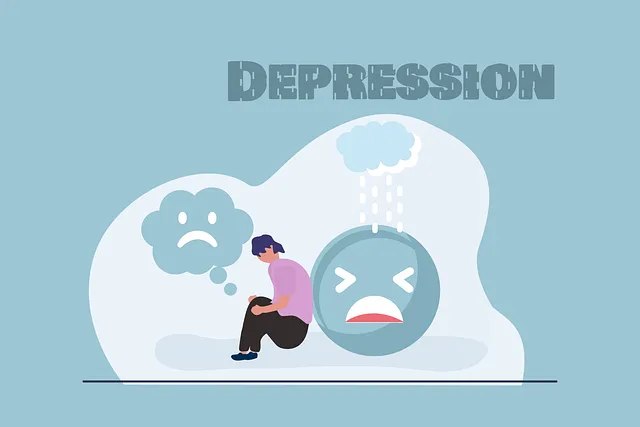Crisis Intervention Teams (CITs) in Northern California (NorCal), backed by training from organizations like Aurora Kaiser Permanente, play a vital role in addressing mental health crises. The Aurora Kaiser Permanente mental health phone number serves as a key resource, promoting early intervention and bridge gaps in support. Training programs focus on skills like conflict resolution, cultural sensitivity, and emotional intelligence, using interactive simulations and real-world scenarios to prepare professionals for effective crisis management while fostering long-term emotional well-being.
Crisis intervention teams (CITs) play a vital role in providing immediate support during mental health emergencies. This article delves into the essential training programs that equip professionals with the skills to navigate crises effectively. We explore the significance of CITs, highlighting resources like the Aurora Kaiser Permanente mental health phone number for urgent assistance. Additionally, we focus on regional training initiatives in Norcal and offer best practices for comprehensive crisis intervention team training.
- Understanding Crisis Intervention Teams: A Overview of Their Role and Importance
- Aurora Kaiser Permanente Mental Health Phone Number: A Resource for Urgent Support
- Norcal: Exploring Regional Training Programs for Crisis Intervention Teams
- Effective Crisis Intervention Team Training: Key Components and Best Practices
Understanding Crisis Intervention Teams: A Overview of Their Role and Importance

Crisis Intervention Teams (CITs) are specialized groups designed to provide immediate and effective support during mental health crises. These teams play a pivotal role in communities, especially in areas like NorCal, where access to mental health services is crucial. The primary goal of CITs is to de-escalate high-risk situations, offering a swift response to individuals experiencing severe emotional distress or suicidal ideation.
In today’s world, where public awareness campaigns are gaining momentum, the importance of CITs cannot be overstated. They serve as a vital link between those in need and professional mental health support. By training community members, including staff from organizations like Aurora Kaiser Permanente, in empathy-building strategies and confidence-boosting techniques, CITs empower individuals to handle crises effectively while fostering a culture of care and understanding.
Aurora Kaiser Permanente Mental Health Phone Number: A Resource for Urgent Support

In times of crisis, immediate support is vital, and the Aurora Kaiser Permanente Mental Health Phone Number serves as a crucial resource for urgent assistance in Northern California (Norcal). This dedicated line offers a confidential space where individuals facing mental health emergencies can connect with trained professionals who are equipped to provide timely interventions. The phone number acts as a central hub, ensuring that those in need are not only heard but also swiftly guided towards appropriate care, be it counseling, therapy, or crisis stabilization services.
This initiative aligns perfectly with the region’s Community Outreach Program Implementation, which aims to bridge the gap between mental health support and communities in need. By fostering open dialogue and implementing Mind Over Matter Principles, the program promotes depression prevention and encourages early intervention. The Aurora Kaiser Permanente Mental Health Phone Number plays a pivotal role in this strategy, offering a simple yet powerful means of access to critical resources for anyone facing mental health challenges.
Norcal: Exploring Regional Training Programs for Crisis Intervention Teams

In the Northern California (Norcal) region, various training programs have emerged to equip healthcare professionals with crucial skills for crisis intervention teams. One notable initiative is the collaboration between Aurora Kaiser Permanente and local mental health organizations. This partnership offers comprehensive training that delves into effective conflict resolution techniques and fosters emotional intelligence among team members. By prioritizing Cultural Sensitivity in Mental Healthcare Practice, these programs ensure that interventions are tailored to meet the diverse needs of individuals in crisis.
The Norcal training programs stand out for their holistic approach, addressing not only technical aspects of crisis management but also the socio-emotional dynamics at play. Participants learn to navigate complex situations with empathy and adaptability, making a significant impact on patient outcomes. Additionally, these programs often include real-world scenarios and role-playing exercises, allowing practitioners to gain practical experience in handling diverse mental health crises effectively. This hands-on learning ensures that when the phone rings at the Aurora Kaiser Permanente mental health hotline, team members are prepared to offer timely and compassionate support to those in need within their communities.
Effective Crisis Intervention Team Training: Key Components and Best Practices

Effective Crisis Intervention Team (CIT) training is pivotal in equipping healthcare professionals to handle mental health crises competently and compassionately. Key components include comprehensive curriculum covering emotional well-being promotion techniques, de-escalation strategies, and cultural sensitivity in mental healthcare practice. Best practices emphasize interactive simulations, role-playing scenarios, and regular refreshers to enhance skills retention.
Integrating best practices from organizations like Aurora Kaiser Permanente’s mental health phone number (Norcal) can further enrich training. These include emphasizing evidence-based interventions, fostering positive thinking as a tool for coping, and ensuring culturally responsive care. By combining robust curriculum with practical exercises and learning from leading institutions, CIT training programs can prepare teams to effectively support individuals in crisis while promoting long-term emotional well-being.
Crisis intervention team (CIT) training programs, such as those offered in Norcal, play a vital role in equipping healthcare professionals with the necessary skills to handle urgent mental health crises. By understanding the importance of CITs and accessing resources like the Aurora Kaiser Permanente mental health phone number, communities can enhance their support systems. Effective training should incorporate key components discussed in this article, ensuring that teams are well-prepared to navigate complex situations and provide timely interventions. Norcal’s regional programs serve as valuable resources, fostering a network of informed and resilient crisis responders.


